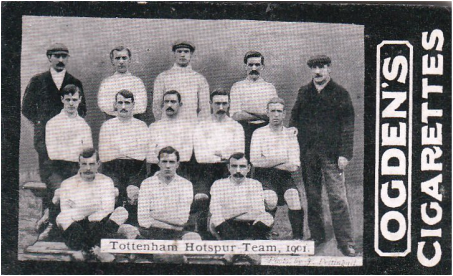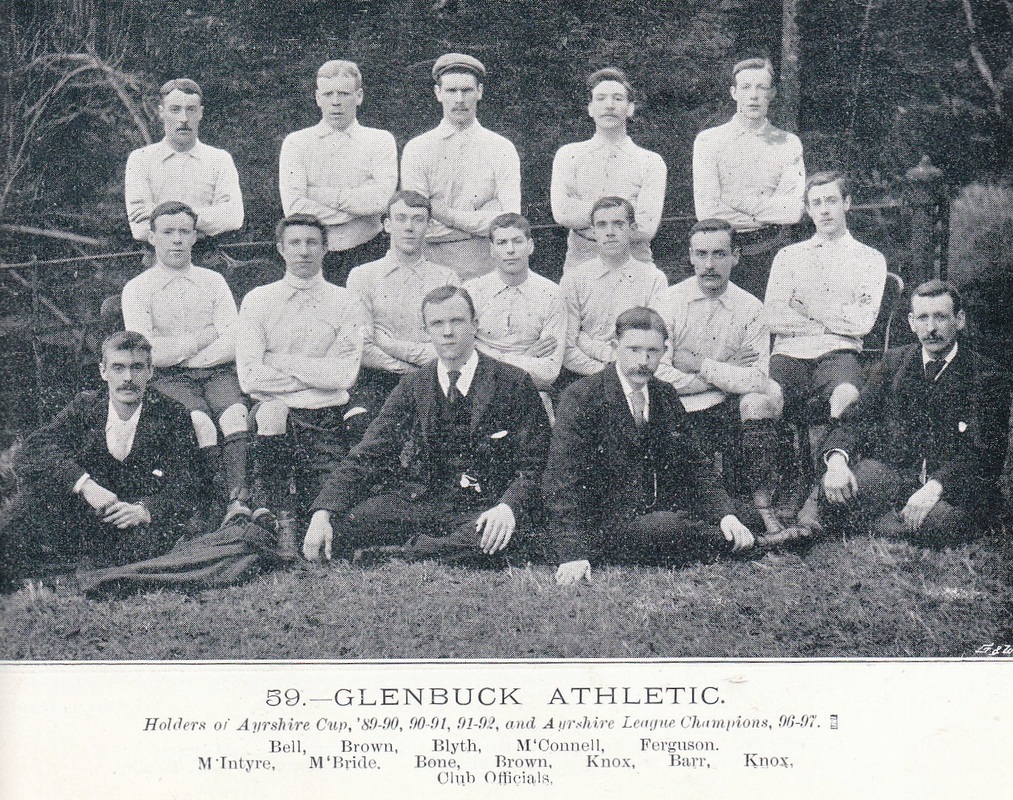The very first of these was the mercurial Alexander 'Sandy' Brown, whose great claim to fame was scoring in every round of the FA Cup in 1900-01 as Tottenham Hotspur won the trophy for the first time. He is in the middle of the front row in the above photo, and there is also online footage of the final, one of the earliest films of a football game. Sandy scored twice in the first match, a 2-2 draw with Sheffield United, and the third goal in the replay which Spurs won 3-1.
The following year he was selected for Scotland against England, and he duly marked his debut with a goal, but it would never appear in the record books. Early in the second half, part of the terracing at Ibrox collapsed, killing 25 people, and although the game was played to a finish it was immediately declared void. When the match was replayed the following month, Sandy was not in the team.
He had to wait a further two years for his one 'official' Scotland cap. By then playing with Middlesbrough, he failed to impress against England as Scotland lost 1-0 at Celtic Park, and he was never troubled by the selectors again.
Sandy Brown started out with Glenbuck Athletic and his football talent rescued him from a life in the coal mines. He turned professional with St Bernard's in Edinburgh early in 1896, just after his 18th birthday, and was an immediate success, scoring 8 goals in 15 league matches. That summer he was snapped up by Preston North End, where he played for three seasons, scoring regularly. But he could not settle, and his career was a progression of moves from club to club: Portsmouth in 1899, Spurs in 1900 for a year, back to Portsmouth, Middlesbrough in 1903 for two seasons, then Luton Town for three years. He set up in Luton as landlord of a pub, the Dewdrop Inn, but well-publicised marital difficulties forced him to give it up.
I recently did some research into his background (helped by contributors to the scottishleague.net message board). It had long been thought Sandy was born in 1879, but a careful analysis of birth records in Glenbuck showed that his date of birth was in fact 21 December 1877 and his mother Margaret White was not married. However, six months later she married the father, William Brown - and the following year they had another son, Tommy, who would later also become a professional footballer with Leicester Fosse and Portsmouth. Sandy ultimately emigrated to New Zealand, and died there in the town of Granity on 6 March 1944.
The village football team is generally known as Glenbuck Cherrypickers, but their original name was Glenbuck Athletic, founded around 1877 by three men including William Brown - possibly Sandy's father. The 'Cherrypicker' name was adopted around the turn of the 19th century and the picture below shows the team just after they won the Ayrshire Junior League in 1897. There are two players in the photo called Brown (without initials), and one of them is Sandy's younger brother Tommy before he moved south.
The Browns were among the earliest of the long conveyor belt of talent from Glenbuck who became professional footballers, an extraordinary record for such an obscure village. Bill Shankly and his brothers are the most famous, but other Scotland internationals include goalkeeper Willie Muir of Dundee (capped in 1907) and John Crosbie of Ayr United and Birmingham (capped 1920-22).


 RSS Feed
RSS Feed